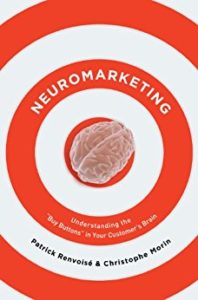3 Steps to Ace the Interview with Lessons From Neuroscience and Marketing
Do you find it hard to get a job after having been to the job interview? Performing at job interviews is a skill. The more you do it, the better you get. When I was in business school, we even had lecturers that came in and gave us some extra lessons on how to perform better in job interviews. I found this to be very valuable when I graduated.
Some people say, go there and be yourself. While I do think that people should be themselves, it is important to be the best version of ourselves and help others understand us better. The problem is that as human beings, we are complex. We all have tons of experiences and valuable skills. But, when you are trying to get a job, you need to reduce that complexity. Less is more. You don’t want to tell them everything about yourself, but the things that matter the most for the particular job you are being interviewed for.
In this post, I want to share a three-step method to preparing yourself for job interviews. These steps are presented in a book called Neuromarketing.
1. Diagnose the Pain
The first critical step is to understand why is this company hiring in the first place? What type of problems are you supposed to solve? In the book, they urge people to go really deep here. Like, a company that is hiring someone for a position where the last person quit after just six months might be scared that the same will happen again. So, the pain for them is: “we don’t want to hire someone that we lose really quickly”. Another recruiter and company might have other incentives. Like, a recruiter might be concerned that the candidate must be producing great results. How can we figure this out?
By talking to the people in the company. Ask them open-ended questions like:
- why are you hiring?
- who had this job before?
- what is important for you in this recruitment process?

2. Differentiate the Claim
This is super important. In this part, we need to focus on why we are different and what that difference can do for the company. This should be related to the companies pain. Let us go through an example.
The example
Let’s say the company is hiring a new person because their old employee was not performing well in the position. The previous employer was a high-level thinker but the job that you are applying for, in accounting, demands someone that is detail oriented. You need to differentiate yourself. Telling them about how you are very keen on details. Tell a story about how you love going through receipts to find that one problem that makes all the accounting complete. This has to be genuine of course. If you realize they are looking for someone that you are not, move on to better opportunities.

In this part, it will also be good to get an understanding about what other people are already working there. Also what skills and experiences other professionals in your field have. In other words, you should be having an idea about how you differentiate yourself from other people in the industry. How can you do this?
I find LinkedIn a good resource here. Look for people with similar profiles as yourself and see what their strengths seem to be. What they are talking about in their summaries. Also, ask the company about what they struggle to find among job hunters. I have had many conversations where companies tell me what they lack in the current job hunters.
As an international talent, you have a huge advantage here. Having the experience from another location can be presented as a clear differentiator. For example, you can say “the fact that I speak Russian makes it possible for us to in the future approach markets where Russian is the language of communication. This is a 260 million people market at the moment”
Right now, I meet a lot of internationals that present themselves: “I have a degree in X, but that is from my home country”. The way you are differentiating yourself with that statement is not good. It tells the other person you are downplaying your degree. Don’t excuse yourself. Realize that your background is unique from anyone else’s. Use this to your advantage.
3. Demonstrate the Gain
Companies hire people to solve their problems. You need to show them what problems you can solve and what gain they will have when hiring you. What things will happen because of you?
The more specific you can be in showing this, the better. There are a lot of things you can do here. You can tell stories about the value you have given to other companies. Problems that you have solved in previous positions. You can demonstrate something that you have made or built by yourself. You can show them prototypes. Another thing that is valuable is testimonials and references from other people. Not “references available upon request” but someone that has actually said something great about your work. Lastly, your personal vision. This is very important. People like the big picture stuff. Tell them about where you want to be in 3 years and how the company will benefit.
Summing up
Next time you are doing an interview, try to go a big deeper and prepare more. Go through these three areas and really ask yourself what pain the company have, how you differentiate and what gain you can provide to them.
Also remember, your life story is your unique strength. No one has the exact same experiences as you.
Good luck!


 Previous Post
Previous Post